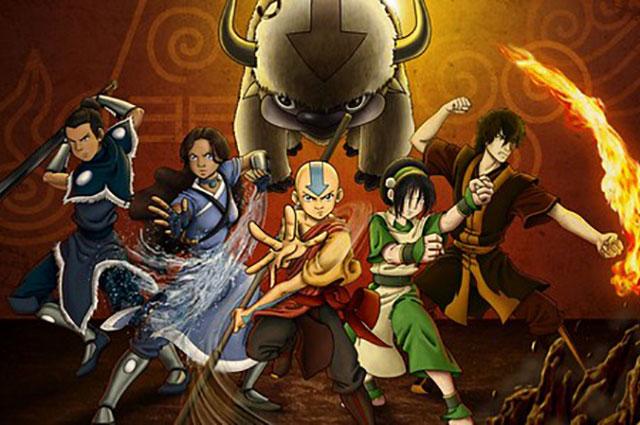Diving Into the Depths of Avatar: The Last Airbender

Avatar: The Last Airbender took the world by storm when it first aired in the mid-2000s, and it once again touched the hearts of millions when it was added to Netflix in May 2020. Old and new fans alike have come together to express their love for the show and marvel over its characters, art, and world-building. Creating this same sense of community at Tufts, Emma Downs provides a place for fans to speak about the show in her Fall 2020 ExCollege course for first-years, Deconstructing Avatar: The Last Airbender.
Emma Downs is a junior who is double majoring in Political Science and Theater & Performance Studies. She was interested in teaching Deconstructing Avatar because the show holds a very special place in her heart. She says:
“I grew up watching Avatar with my entire family as a kid, and it is a show that truly exemplifies cultural appreciation for Asian stories, art, and voices. It reveals the value in Asian culture – in my culture – in a way that no other American show or movie does that I know of. It deals with complex themes like imperialism, genocide, ableism, sexism, spirituality and philosophy, recovery from familial trauma, and mental health in a masterful way. I wanted to examine these themes and the show’s influences in an academic setting with other people who, like me, truly appreciate the show.”
Avatar: The Last Airbender is an award-winning animated show that premiered on Nickelodeon from 2005 to 2008. Many critics regard Avatar as one of the best television series of all time, praising it for mature themes that are rarely brought up in youth entertainment. Downs’ class examines these complex themes and the real-world influences that are woven throughout the show.
Various sophisticated and introspective topics are explored within the show and discussed in this Explorations course. “We are examining influences like martial arts, imperialist conquests throughout history, Confucianism, Nepalese Buddhist practices, and different questions of morality and good versus evil that the show approaches,” Downs explains. “We will also be discussing disabilities, both physical and mental, as viewed in American and Asian cultures and on the show, as well as how Avatar fits into the conversation about Asian representation.”
Deconstructing Avatar is an in-person course structured to be highly participatory and discussion-based. The homework for each week consists of watching a few relevant episodes for each class’s topic, which spans from the components that make up a fictional world to the show’s critiques of the real world. Downs believes in the importance of interactivity, “I want to use a combination of bonding exercises, fun activities, and group analytical discussions to make the class fun but intellectually stimulating, so students can develop the skills necessary for excelling during the rest of the college career,” she explains. Therefore, there are many unique activities spanning the course, one of which being a guest instructor virtually teaching taekwondo. Assignments in the course are engaging as well, such as students writing short scenes including the characters of the show or designing their own spirit from the Spirit World. Though they are not on the class roster, Downs’ plushies of the characters’ animal companions Appa and Momo are two special guests that attend every class.
Downs emphasizes that the first-years in her class should not be ashamed of their interest in Avatar. Though the show may have originally been targeted toward children, it can be appreciated by a wide audience regardless of age. She says:
“I hope students understand that it is completely okay to be themselves and embrace a show like Avatar. I know that as I was coming out of high school, which is often a very competitive and suppressive, anxiety-producing environment, I was so scared to be myself as I was surrounded by so many different people with no idea where I fit in. I wanted to be liked, and I almost changed myself to get that. I want freshmen to know that their individuality is valuable and that they should not be afraid to express themselves freely, openly, and without remorse, that it is completely okay to love shows like Avatar, and that those seemingly non-mainstream interests, when embraced, can actually lead to amazing bonds. I want my freshman to know that people will value you for every Avatar-loving part of you and that you will make connections by being yourself and expressing those interests you are insecure about.”
With the encouragement from a peer teacher like Emma, we hope all students can head out and master the elements.
Written by Kaycee Feldman, Class of 2023
Published November 23, 2020